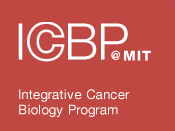| Title | SirT1 is required in the male germ cell for differentiation and fecundity in mice. |
| Publication Type | Journal Article |
| Year of Publication | 2014 |
| Authors | Bell, EL, Nagamori, I, Williams, EO, Del Rosario, AM, Bryson, BD, Watson, N, White, FM, Sassone-Corsi, P, Guarente, L |
| Journal | Development |
| Volume | 141 |
| Issue | 18 |
| Pagination | 3495-504 |
| Date Published | 2014 Sep |
| ISSN | 1477-9129 |
| Keywords | Acetylation, Animals, Cell Differentiation, Chromatin Assembly and Disassembly, Chromatography, Liquid, Female, Fertility, Fluorescent Antibody Technique, Germ Cells, Histones, Immunoblotting, Immunohistochemistry, Male, Mice, Mice, Inbred C57BL, Mice, Knockout, Protein Processing, Post-Translational, Sirtuin 1, Spermatogenesis, Tandem Mass Spectrometry, Testis |
| Abstract | Sirtuins are NAD(+)-dependent deacylases that regulate numerous biological processes in response to the environment. SirT1 is the mammalian ortholog of yeast Sir2, and is involved in many metabolic pathways in somatic tissues. Whole body deletion of SirT1 alters reproductive function in oocytes and the testes, in part caused by defects in central neuro-endocrine control. To study the function of SirT1 specifically in the male germ line, we deleted this sirtuin in male germ cells and found that mutant mice had smaller testes, a delay in differentiation of pre-meiotic germ cells, decreased spermatozoa number, an increased proportion of abnormal spermatozoa and reduced fertility. At the molecular level, mutants do not have the characteristic increase in acetylation of histone H4 at residues K5, K8 and K12 during spermiogenesis and demonstrate corresponding defects in the histone to protamine transition. Our findings thus reveal a germ cell-autonomous role of SirT1 in spermatogenesis. |
| DOI | 10.1242/dev.110627 |
| Alternate Journal | Development |
| PubMed ID | 25142464 |
| PubMed Central ID | PMC4197722 |
| Grant List | F32CA132358 / CA / NCI NIH HHS / United States R01 AG011119 / AG / NIA NIH HHS / United States U54 CA112967 / CA / NCI NIH HHS / United States U54CA112967 / CA / NCI NIH HHS / United States |
